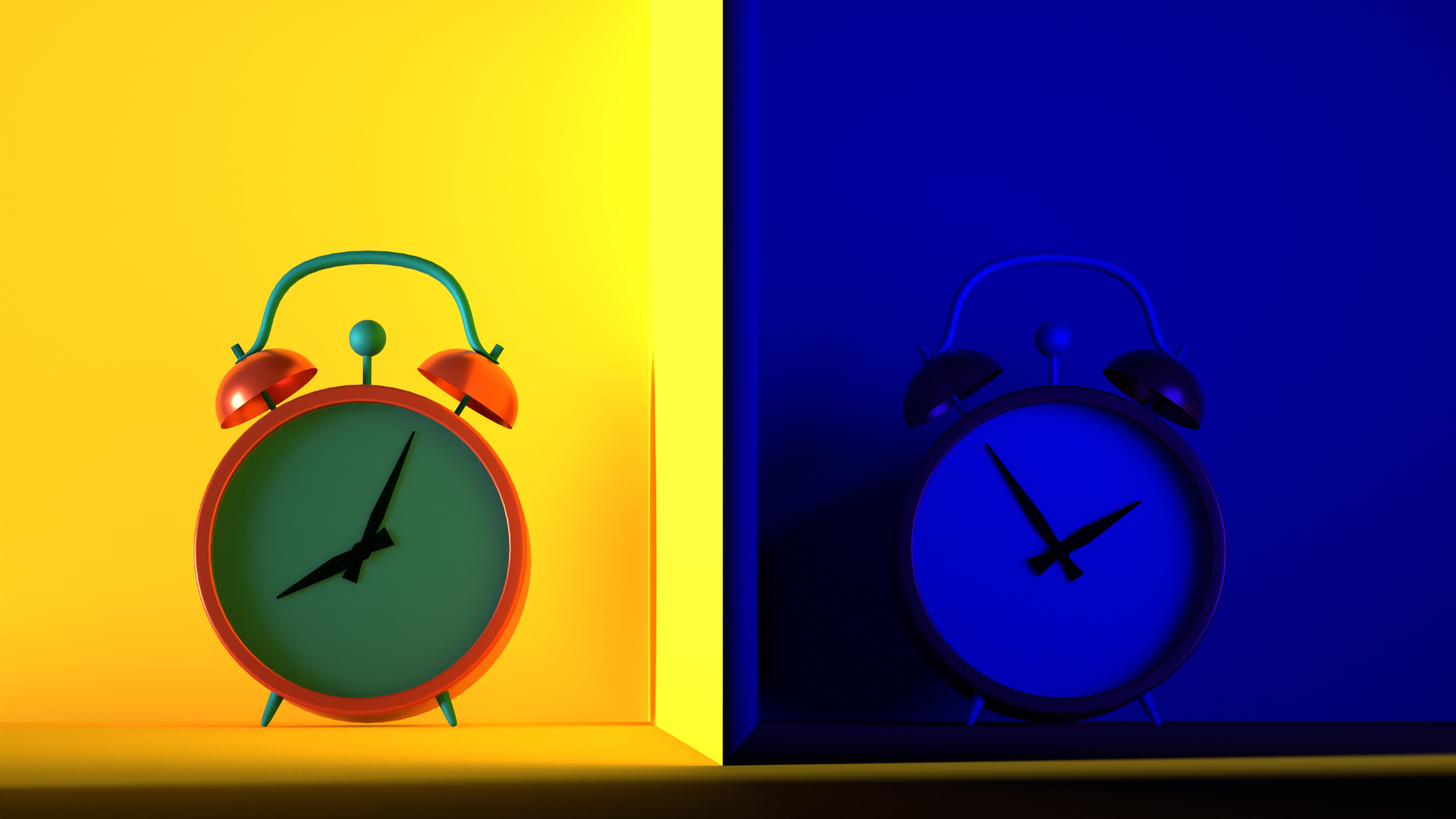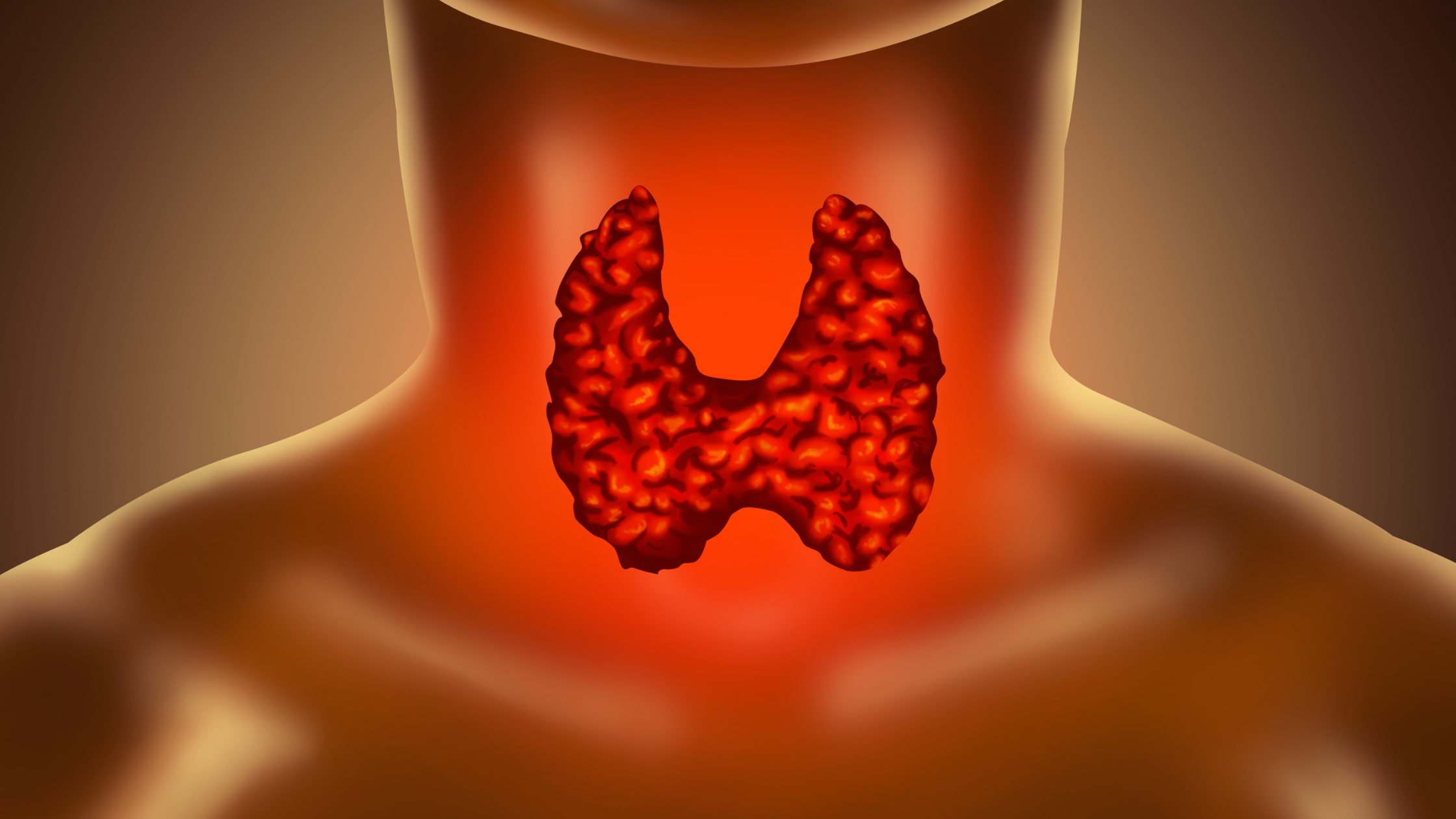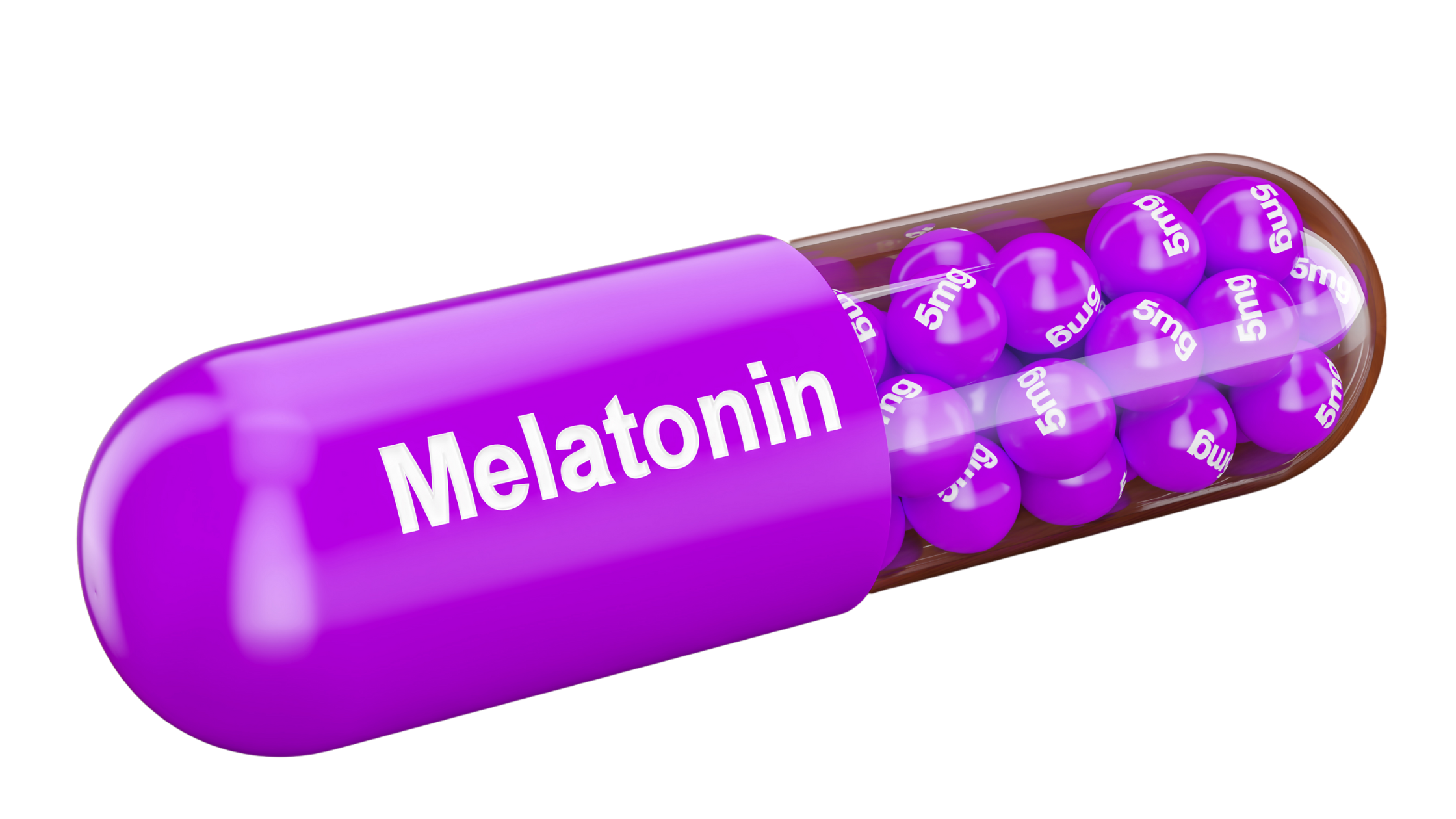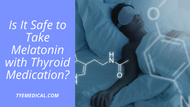Is It Safe to Take Melatonin with Thyroid Medication?
Written by TYE Medical on Sep 9th 2025
If you have a thyroid condition, you feel best when your hormones are optimally regulated. It often takes more than just medication, requiring self-care that includes healthy sleep habits. Sleep problems can exacerbate thyroid symptoms, creating a viscous and unhealthy cycle of lacking sleep and additional thyroid symptoms.
Thyroid problems are common from middle-age and up. During your 40s-60s, autoimmune disorders that affect the thyroid, such as Hashimoto’s, are often diagnosed. But after age 60, thyroid function decreases due to age, sometimes requiring medication to boost its performance. Unfortunately, during these years, sleep disturbances also increase frequency.
So how do you manage both your concern for thyroid health and your need for sleep? Your body naturally regulates your sleep-wake cycle (circadian rhythms) through the natural chemical melatonin produced in the brain. Optimizing melatonin levels can help you get better rest and may even promote thyroid health.
What Is Melatonin’s Role?

The brain’s pineal gland produces melatonin which is produced and released according to the amount of light exposure. The retina detects changes in light signaling your brain and, eventually, the pineal gland to either increase or decrease the creation and release of melatonin. Since melatonin increases sleepiness, people with insomnia or sleep disturbances are often advised to dim the lights as bedtime approaches.
However, when you awake in the morning and want to be alert, turning on artificial lights or opening the blinds to welcome the sunshine will suppress the release of melatonin, increasing wakefulness. You might find that at certain times of the year when it’s dark outside earlier, you are ready for bed sooner. The darkness of night stimulates melatonin, at least to some degree, even with indoor lighting ablaze. On average, peak melatonin hours are between 2 and 4 a.m. and then tapers until daybreak.
Melatonin and Circadian Rhythm

Circadian rhythm serves as an internal clock that operates on a 24-hour cycle that operates according to the “master” clock, known as the SCN (suprachiasmatic nucleus) found in the brain’s hypothalamus. As your retinas detect the amount of light, signals are sent to the SCN and eventually to the pineal gland to regulate melatonin production and release.
Circadian rhythm affects several bodily systems, such as:
- Eating habits
- Hormone regulation and secretion
- Digestive function
- Body temperature
- Blood sugar control
When circadian rhythm is aligned and running smoothly, sleep is restorative and consistent. However, sleep trouble and other health issues can arise when rhythms are disturbed.
What Causes Disruptions in Melatonin Levels?

Circadian rhythm and hormone balance is a delicate system that anything outside the norm may disrupt, like seasonal time changes or a warm sleeping environment. Most commonly, it is changes in the sleep-wake cycle that throws off circadian rhythm.
Jet lag is a widely known trigger for circadian rhythm disturbance. When you cross multiple time zones and must adjust to a wake-sleep cycle that is hours different from your usual routine, your circadian rhythm is disturbed, and you will find it difficult to sleep and wake at the appropriate time in the new time zone.
Another common disturbance to circadian rhythm is shift work that includes a varying schedule for sleeping and waking. Often, shift work involves sleeping during some portion of daylight hours and working during night hours. On days off, you may find it difficult to adjust to the daytime schedule or return to your nighttime work routine. The challenge is due to the disturbance in your body’s circadian rhythm.
Certain health conditions can also impact your body clock, including sleep apnea, Alzheimer’s, anxiety, depression, and thyroid disease.
Does Melatonin Help Hypothyroidism?

No broad range of research exists concerning the correlation between thyroid function and melatonin. But some studies suggest that melatonin acts as an antioxidant, helping your body fight off free radicals and prevent cellular damage that could affect the thyroid.
Melatonin may suppress thyroid function, which is beneficial if you have hyperthyroidism, or an overactive thyroid. But if your thyroid is healthy or you have hypothyroidism, melatonin could work against you when taken regularly. If you have hypothyroidism and take melatonin routinely, be sure to have your thyroid hormone levels checked.
But don’t assume that you should avoid melatonin completely if you have hypothyroidism. When your thyroid is underactive, the stress from lack of sleep or poor sleep quality can worsen the condition. If melatonin effectively improves your sleep, it could be more beneficial than problematic. Confer with your doctor and continue to have your thyroid levels checked regularly.
Does Melatonin Impact Autoimmunity?

Hashimoto’s thyroiditis, an autoimmune thyroid disease, is the leading cause of hypothyroidism in the U.S. People with this disease have an immune system that attacks the thyroid, decreasing function and destroying the thyroid over time.
Melatonin can greatly impact your immune system, activating and suppressing certain functions. Specifically, melatonin calms the inflammatory response, which can help regulate your immune system overall, especially when it’s by prescription for this purpose. This can be a notable benefit for autoimmune conditions, including Hashimoto’s.
Melatonin also plays a role in regulating the immune function found in the gut. Scientists consider gut health a new frontier with much research still to be done. But more recent studies conclude that the gut contains most of the human immune system. The term gut refers to the digestive system with an emphasis on the intestines.
Melatonin helps to keep the gut healthy and regulated, which according to some research, can help prevent or repair leaky gut (a condition that involves a damaged gut membrane that allows toxins to seep into the body, triggering the immune system). This condition is thought to contribute to the onset of autoimmune diseases, which means that appropriate doses of melatonin could help prevent conditions like Hashimoto’s.
How to Take Melatonin When You Have Hypothyroidism

It seems that there are both positives and negatives when it comes to taking melatonin while managing hypothyroidism. The supplement may further suppress thyroid function but also reduce inflammation caused by Hashimoto’s. It’s best to consult with your doctor to understand what is best for you at the specific stage you are in.
If you do begin taking a melatonin supplement, make an appointment to have your thyroid checked three weeks later to be certain you are still functioning at optimal thyroid levels. Most people begin taking one to three milligrams of melatonin daily and increase as needed or as instructed by a doctor. Instructions vary, but generally it’s recommended that you take it 30 minutes to two hours before your bedtime.
After taking melatonin, it’s also recommended that you take natural steps to encourage the effects rather than countering them. This means turning down the lights and minimizing distractions, especially screens like phones, tablets, computers, and television. It’s also best not to engage in anything mentally stimulating or exciting.
Melatonin Side Effects
Melatonin is considered a safe supplement, especially when taken appropriately. Improved sleep quality and relief from insomnia are its major benefits. But with these helpful outcomes comes potential side effects, as with any supplement or medication. When you take melatonin, you might experience dizziness, headaches, nausea, and drowsiness. It’s rare, but for some people melatonin causes mild anxiety, depression, abdominal cramping, and mild tremors.
Enhance Melatonin with the Right Sleeping Environment

Aside from the correct dosage of thyroid medication and supplementing with melatonin with your doctor’s guidance, you should optimize your sleeping environment.
Ensure that your bedroom is a place of relaxation and sleep that you find comfortable. If clutter drives you crazy, be sure that your bedroom is cleared out and orderly. Even the bed itself must be a place devoid of stress. Avoid bringing electronics to bed, including phones, and don’t allow any work related items in bed. This means no bringing a laptop. Aside from work not being relaxing, screens and devices emit blue light that stimulates mental activity.
It’s also important to keep your bedroom temperature cooler than you would have it during the day. This lower temperature promotes falling asleep and staying asleep, whereas warmer sleeping temperatures often cause sleep disturbances. This is especially true when you have hypothyroidism.
Is Melatonin Right for You?

This is important to discuss with your doctor, especially if you have hypothyroidism. Optimizing sleep by supplementing with this natural chemical can help you sleep better and positively affect your thyroid hormone levels. On the other hand, continual use of melatonin may suppress thyroid function, which is a problem if your thyroid is already underactive. Under doctor supervision, you can experiment with the use of melatonin and regularly have your thyroid hormone levels checked for any noticeable changes.
Additionally, you can create the optimal sleep environment by keeping lights dim, organizing your sleep space, keeping electronics out of your bedroom, avoiding work or anything stressful an hour or more before bedtime.
It’s also important to monitor your caffeine and alcohol intake. Alcohol can disturb your sleep patterns and keep you from feeling rested the next day. Also, caffeine stays in your systems for five to six hours after consuming it. Be careful about having caffeine after midafternoon as this could affect your ability to sleep well.


